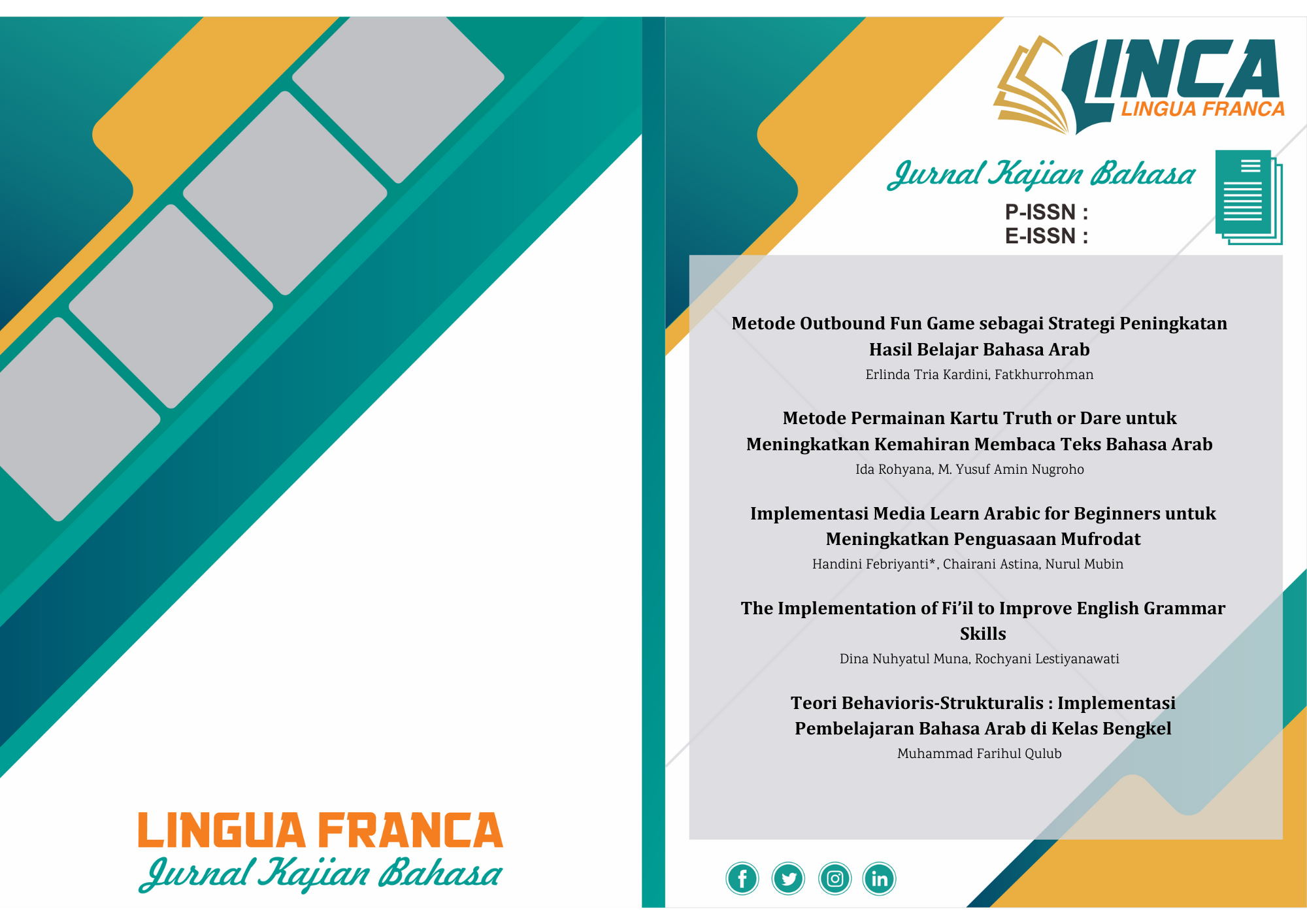Metode Outbound Fun Game sebagai Strategi Peningkatan Hasil Belajar Bahasa Arab
Keywords:
Metode, Outbound Fun Game, Hasil Belajar Bahasa ArabAbstract
This research aims to: 1) To determine the application of the Outbound Fun Game method to improve Arabic language learning outcomes for class XI MA NU Darul Islah Surengede, Kertek students. 2) To determine the increase in Arabic language learning outcomes after applying the Outbound Fun Game method to class XI students at MA NU Darul Islah Surengede, Kertek. 3) To find out the differences in Arabic language learning outcomes between those who use the Outbound Fun Game method and those who don't use it for class XI MA NU Darul Islah Surengede, Kertek students. This research is a type of field research using a quantitative approach carried out at MA NU Darul Islah Surengede, Kertek, with an experimental research type, the research design uses a quasi experimental design, namely there is an experimental class and a control class. To collect the necessary data, researchers used data collection techniques, namely: observation, interviews, documentation and tests. And to analyze the data, researchers used several data analysis techniques, namely: preliminary analysis and hypothesis testing. The results of this research show that: 1) The application of the Outbound Fun Game learning method has been proven to improve the Arabic language learning outcomes of class XI MA NU Darul Islah Surengede, Kertek students. 2) There is an increase in students' Arabic learning outcomes after implementing the Outbound Fun Game learning method as proven by hypothesis testing with a gain test which obtained a result of 0.751 which is included in the medium category. 3) There are differences in student Arabic learning outcomes between classes that apply the Outbound Fun Game learning method and those that do not apply the Outbound Fun Game learning method. This is proven by the results of the t test calculation of 8.566 where at the 1% error level = 2.660 and at the 5% error level = 2.000, thus showing that > both at the 5% and 1% error levels, then is rejected and is accepted.
References
Asyrofi Syamsuddin. 2010. Metodologi Pembelajaran Bahasa Arab, Yogyakarta: Idea Press.
Bobbi Deporter dan Mike Hernacki. 2000. Quantum Learning, Bandung: Kaifa.
Handayani, Wahyu., dan Fitriani, Ignatia Imelda. 2019. Pengaruh Fun Outbond terhadap Kemampuan Kerja Sama Anak. Jurnal Pendidikan Dan Psikologi Pintar Harati Vol. 5.
Hasil observasi pembelajaran dengan guru MA NU Darul Islah di kelas X pada hari senin tanggal 4 september 2023.
Komara, Moh. Edi. 2016. Skripsi Penerapan Metode Outbound Fun Game Dalam Pembelajaran Bahasa Arab. Fakultas Tarbiyah/PBA UIN Sunan Kalijaga. Yogyakarta.
Muchlisin., dan Asti, Badiatul. 2009. Fun Outbound Merancang Kegiatan Outbound yang Efektif. Jogjakarta: Diva Press.
Sugiyono, 2015. “Metode Penelitian Pendidikan (Pendekatan Kuantitatif, Kualitataif, dan R&D)”, (Cet. 21: Bandung: Alfabeta).
Sujarweni, Wirantna, 2014, “Metodologi Penelitian”, Yogyakarta: Pustaka Baru Press.
Mufarrikoh Zainatul, 2019, “Statistika Pendidikan (Konsep Sampling dan Uji Hipotesis)”, Surabaya: Jakad Media Publishin.


